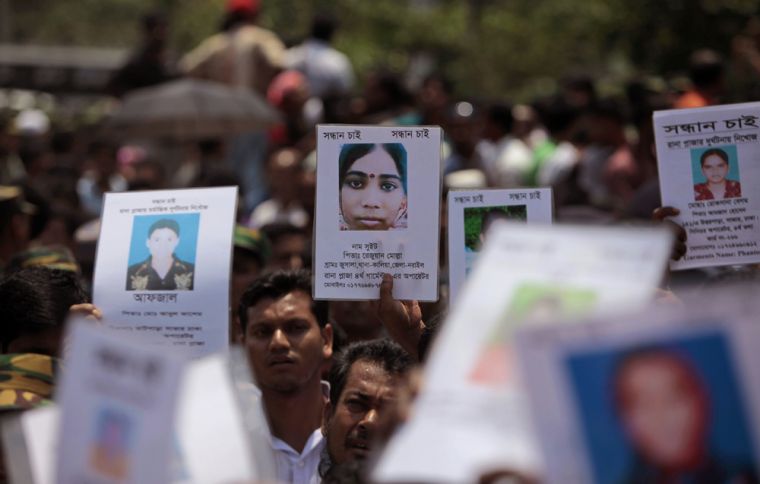Former Kirk Moderator applauds TV exposé of conditions for Bangladeshi garment workers

A Scottish church leader has thanked BBC's Panorama programme for exposing the inhumane working conditions experienced by garment workers in Bangladesh.
The episode of the investigative programme was called 'Dying for a bargain' and found evidence of clothes manufacturers, including those behind some of the UK's big high street brands, putting profit before safety.
It was filmed following the horrific collapse of the Rana Plaza in Dhaka, where over 1,000 people, mainly garment workers were killed.
The documentary shows secretly filmed footage of garment factory workers being locked in to the building and factory bosses lying about the length of shifts.
The Very Reverend John Christie, former Moderator of the General Assembly of the Church of Scotland, visited Bangladesh in 2010 and was horrified by what he saw.
Since then, he has been a vocal campaigner for the rights of Bangladeshi garment workers and is spearheading a new church-led campaign in the UK to raise awareness of their plight among shoppers.
He urged everyone to watch the documentary - still available to view here
"It is 2013. We must ensure that the people working to make clothes for many of our leading high street stores and brands have safe working conditions - not ones akin to the worst excesses of the industrial revolution," he said.
"We must make sure tragedies such as the collapse of the nine-storey Rana Plaza in Savar, Bangladesh, where over 1,127 people were killed in April this year, are never allowed to happen again."
The campaign brings together the Church of Scotland, Methodist Church, Church Mission Society and other organisations in partnership with the Church of Bangladesh.
It was launched in the run-up to the winter and Christmas sales, and is urging consumers to shop with a conscience.
However, the campaign makes clear that this does not mean boycotting goods manufactured in Bangladesh altogether.
Instead, the Churches want consumers to put pressure on retailers and politicians to improve wages, safety and working conditions for Bangladeshi garment workers.
"We want people to keep buying Bangladeshi goods - a boycott would be futile and actually harm workers," Mr Christie explained.
"Our energies should be directed at making sure, by lobbying the companies from which we buy our clothing, that the conditions for those who make our garments, are as good as they can be."











